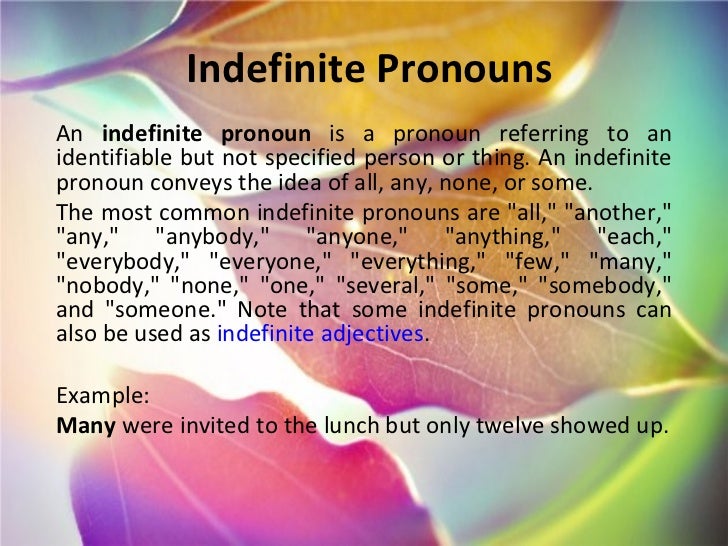
Similarly, in, others is a common noun, not a pronoun, but the others probably stands in for the names of other people involved (e.g., Sho, Alana, and Ali), all proper nouns. In, did so is a verb phrase that stands in for "helped", inflected from to help stated earlier in the sentence. No other word can function there with the same meaning we do not say "the sky is raining" or "the weather is raining".įinally, in, there are pro-forms that are not pronouns. Similarly, in, it is a dummy pronoun, one that does not stand in for anything. In, the interrogative pronoun who does not stand in for anything. In, the relative pronoun who stands in for "the people".Įxamples are pronouns but not pro-forms.

In, the pronoun it "stands in" for whatever was mentioned and is a good idea.

JJ and Petra helped, but the others didn't.Įxamples are pronouns and pro-forms. I asked her to help, and she did so right away. In English, pronouns mostly function as pro-forms, but there are pronouns that are not pro-forms and pro-forms that are not pronouns. A pro-form is a type of function word or expression that stands in for (expresses the same content as) another word, phrase, clause or sentence where the meaning is recoverable from the context. For example, in That's not the one I wanted, the phrase the one (containing the prop-word one) is a pronominal. A pronominal is also a word or phrase that acts as a pronoun. The name of the adjective that belongs with a "pronoun" is called a " pronominal". For example, in the sentence That poor man looks as if he needs a new coat, the meaning of the pronoun he is dependent on its antecedent, that poor man. The use of pronouns often involves anaphora, where the meaning of the pronoun is dependent on an antecedent. Subtypes include personal and possessive pronouns, reflexive and reciprocal pronouns, demonstrative pronouns, relative and interrogative pronouns, and indefinite pronouns. An example of a pronoun is "you", which can be either singular or plural. Pronouns have traditionally been regarded as one of the parts of speech, but some modern theorists would not consider them to form a single class, in view of the variety of functions they perform cross-linguistically.

In linguistics and grammar, a pronoun ( abbreviated PRO) is a word or a group of words that one may substitute for a noun or noun phrase. For other uses, see Pronoun (disambiguation). This article is about a word which is used instead of a noun.


 0 kommentar(er)
0 kommentar(er)
